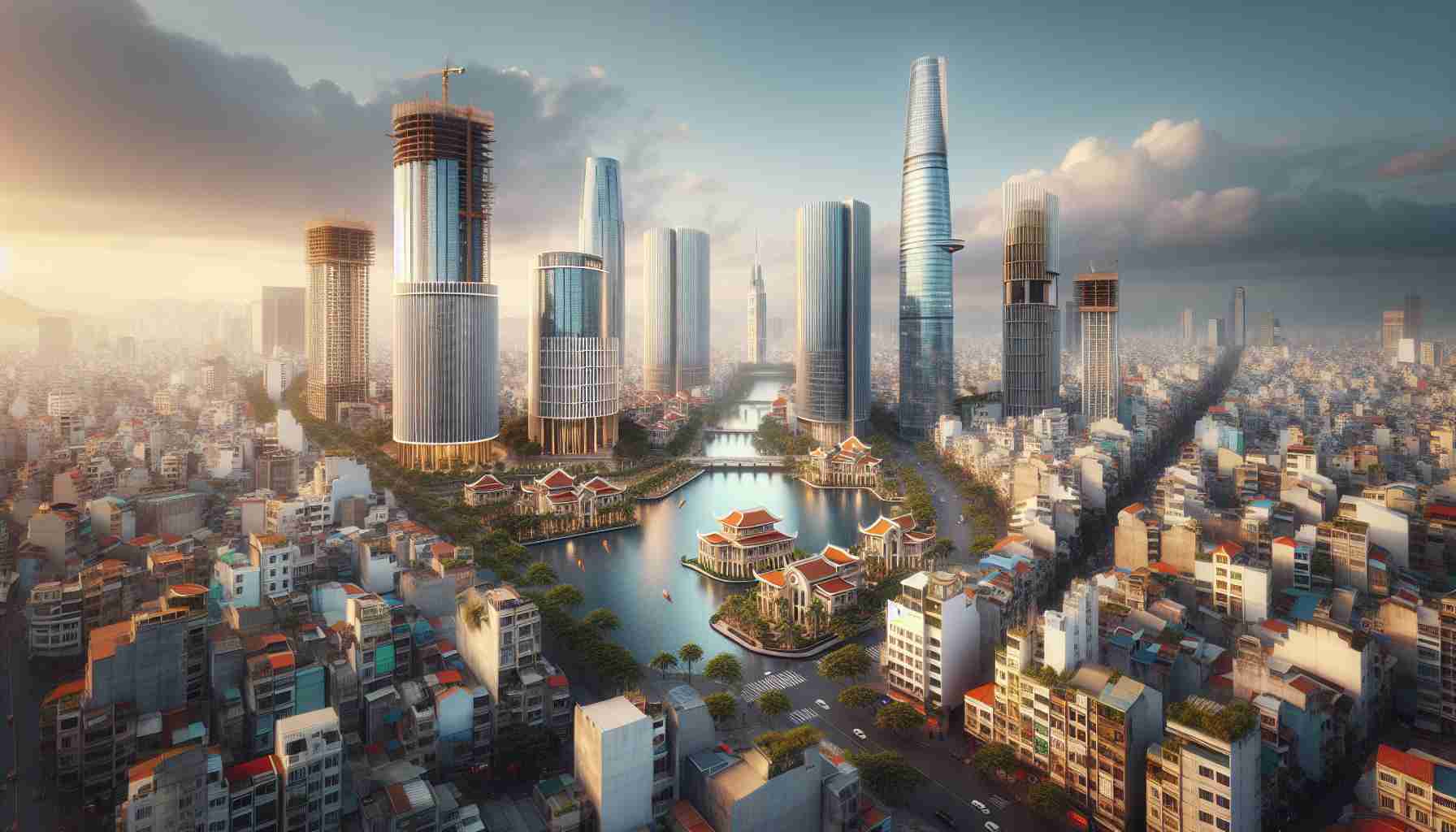A Step Towards Smart Urban Living in Vietnam
In a remarkable ceremony at the Vietnam-Asia Smart City Summit 2024 in Hanoi, the Vietnam Software and IT Services Association (VINASA) honored ten cities with the prestigious Smart City Awards 2024. This recognition came as part of a mission to highlight innovative technological solutions aimed at creating smarter urban environments.
This year saw an impressive 70 nominations, showcasing the commitment of various localities and organizations to advance Vietnam’s smart city initiatives. VINASA’s Chairman emphasized the significance of these awards over the past five years in fostering sustainable urban development across the country.
Prominent cities like Da Nang, Thu Duc, and Ho Chi Minh City emerged as front-runners, reflecting their strides in leveraging technology for urban management. Da Nang, recognized as a leader in smart city initiatives, garnered multiple accolades including the “Vietnam Smart City Award 2024” for its effective operational strategies.
Thu Duc City’s notable achievement in smart operations came through its innovative app, integrating numerous sectors and enhancing residents’ experiences. Moreover, SafeGate’s “Smart Firewall,” designed to meet the unique needs of local organizations, was celebrated for its contribution to cybersecurity.
As Vietnam dives deeper into digital transformation, the organizers aim to raise the standards of these awards, inviting even greater innovations in the smart city domain for the future.
The Rise of Smart Cities in Vietnam: Transforming Urban Landscapes
Introduction
Vietnam is embracing a new era of urban development marked by innovation and technology. The recent Vietnam-Asia Smart City Summit 2024 in Hanoi highlighted significant advancements in smart city initiatives across the country. With awards recognizing exemplary efforts, cities such as Da Nang, Thu Duc, and Ho Chi Minh City are leading the way in creating smarter, more sustainable environments.
Features of Vietnam’s Smart City Initiatives
1. Technological Integration: Cities are increasingly leveraging advanced technology, including IoT (Internet of Things), big data analytics, and AI, to enhance urban management. These tools help optimize resource use and improve public services.
2. Innovative Applications: Thu Duc City has developed an innovative app that integrates various services, from utility management to public safety. This application enhances the living experience for residents by providing seamless access to essential services.
3. Cybersecurity Measures: As urban areas become more digitally connected, ensuring cybersecurity becomes paramount. SafeGate’s “Smart Firewall,” recognized during the summit, exemplifies efforts to protect urban infrastructure from cyber threats.
Pros and Cons of Smart City Development
Pros:
– Increased Efficiency: Smart technologies can streamline city operations, reduce waste, and increase overall efficiency in service delivery.
– Enhanced Quality of Life: Residents benefit from improved public services, including transportation, healthcare, and safety features.
– Sustainable Practices: Smart cities are geared towards sustainability, utilizing technology to manage resources more effectively and reduce environmental impact.
Cons:
– High Initial Investment: Implementing smart city technologies often requires significant upfront funding, which can be a barrier for some municipalities.
– Data Privacy Concerns: The collection and management of large amounts of data raise privacy issues that need to be carefully addressed.
– Digital Divide: There is a risk that not all citizens will benefit equally from smart city advancements, particularly those with limited access to technology.
Use Cases and Innovations
– Smart Traffic Management: Innovations in traffic systems, such as adaptive traffic lights and real-time monitoring, can help alleviate congestion in major urban areas.
– Smart Waste Management: Cities are implementing sensors in waste bins to alert services when collection is needed, optimizing waste collection routes.
– Urban Health Initiatives: Recognizing public health challenges, smart cities are developing applications that connect residents with healthcare services and information.
Market Analysis and Future Predictions
The smart city market in Vietnam is expected to continue growing as more cities commit to technological upgrades. According to industry forecasts, investments in smart urban solutions are likely to reach billions of dollars over the next decade. This growth opens opportunities for local and international tech companies to participate in urban development initiatives.
Sustainability and Security Aspects
Sustainability remains a core objective of smart city projects. The integration of renewable energy sources, smart grids, and eco-friendly construction practices are essential components. Simultaneously, security is critical, not only in terms of physical safety but also in protecting digital infrastructures from cyber threats.
Conclusion
With the recognition of its pioneering cities at the Vietnam-Asia Smart City Summit 2024, Vietnam is undoubtedly on a trajectory towards urban transformation. The commitment to innovation, coupled with a focus on sustainability and security, sets the foundation for smarter, more efficient urban living. As cities continue to evolve and embrace technological advancements, residents can look forward to improved quality of life and services.
For more information about smart cities, visit VINASA.
